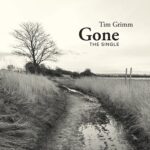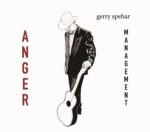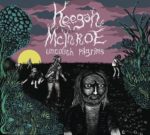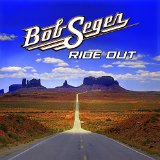 I’m fascinated by the way current affairs are reflected in the arts generally and music in particular. The last few years have seen the resurgence of the protest singer and the protest song and, to use pandemic terminology, in 2020 the resurgence has been exponential as the time approaches when America has to make another choice of President and the majority of creatives are making it clear where their support lies. The trajectory of Tim Grimm’s trilogy of Trump singles (“Woody’s Landlord”, “Gonna be Great” and “Gone”) reflects the response of many of the many American artists I’ve seen or heard over the last four years – from amusement at Trump’s candidature, through disbelief at the election result to horror and despair at results of four divisive and confrontational years.
I’m fascinated by the way current affairs are reflected in the arts generally and music in particular. The last few years have seen the resurgence of the protest singer and the protest song and, to use pandemic terminology, in 2020 the resurgence has been exponential as the time approaches when America has to make another choice of President and the majority of creatives are making it clear where their support lies. The trajectory of Tim Grimm’s trilogy of Trump singles (“Woody’s Landlord”, “Gonna be Great” and “Gone”) reflects the response of many of the many American artists I’ve seen or heard over the last four years – from amusement at Trump’s candidature, through disbelief at the election result to horror and despair at results of four divisive and confrontational years.
“Gone” is where the rope runs out, in the middle of a botched response to a pandemic and the most unprincipled and vicious American presidential election campaign in living memory. This could have been a very angry song, but Tim takes a different path. “Gone” emphasises the despair felt by some Americans at the state of their country. It would have been very easy to push the highly emotive buttons, but Tim doesn’t do that, musically or lyrically. “Gone” is a sparse, slow, unshowy country-rock arrangement with lyrics that are allusive; no names are mentioned although we know it’s about Trump and we know that ‘And the man who brought us Paradise has laid down his guitar’ is about the loss of John Prine.
Subtlety is crucial here, probably as a deliberate contrast with the methods of POTUS. We don’t need to have everything hammered home in detail; we should be able to connect the dots and see the patterns ourselves. It’s an important message in an era where aggressive confrontation seems to be the accepted norm and it’s a welcome respite.
“Gone” is out now on Cavalier Recordings (CR255931).
And here’s the video:
 It’s a phrase that first was first heard in feminist politics in the late sixties – “The personal is political” – and it’s just as applicable in the USA today. Jess Klein’s latest album, “Back to My Green” is the culmination of a period of turmoil that was both political and personal; a new relationship (and marriage) and a certain presidential election in 2016. Both of those things had a massive impact on Jess Klein’s work, and her upheaval is definitely our gain, pushing her out of her comfort zone and into new ways of writing and recording. A stripped-back, raw set of songs morphed over time into a band sound which even stretched to a couple of sixties-style string quartet arrangements.
It’s a phrase that first was first heard in feminist politics in the late sixties – “The personal is political” – and it’s just as applicable in the USA today. Jess Klein’s latest album, “Back to My Green” is the culmination of a period of turmoil that was both political and personal; a new relationship (and marriage) and a certain presidential election in 2016. Both of those things had a massive impact on Jess Klein’s work, and her upheaval is definitely our gain, pushing her out of her comfort zone and into new ways of writing and recording. A stripped-back, raw set of songs morphed over time into a band sound which even stretched to a couple of sixties-style string quartet arrangements.
The album’s rough trajectory is from the personal through the personal/political and back to the more contemplative personal as the album closes and, although the title track has a powerful message, the personal and political strands are knitted together inextricably in the album’s longest and hardest-hitting song “New Thanksgiving Feast” which ties highly personal childhood reminiscences to ancient fishing rights, Native American pipeline protests and the ‘taking the knee’ national anthem protests spreading through American sport. It’s a heady mix and underlines a theme that’s increasingly common in Americana today; depending on whose figures you believe, ninety-nine per cent of Americans are descended from immigrants. Jess Klein only has go back two generations to find that link (a bit like POTUS really, but I bet Jess’s father didn’t attract the ire of Woody Guthrie). “Blair Mountain” also combines the two strands, looking at the impact of rapacious mining on the economics and ecology of a small town while “Gates of Hell” rails at the lunacy of life in the land of the free in the early twenty-first century.
Which brings us to the title song, positioned in the middle of the album. The message is that there can be an escape from the madness if you find the right place. I’ve focussed on the lyrical content, but Jess has also created some memorable melodies and the band creates musical settings that allow each of the songs to shine. The album is studded with interwoven personal insights and social comment married to great tunes. I’ll take that any day of the week.
“Back to My Green” is released in the UK on Friday February 22 on Blue Rose Records (BLU DP0727) and Jess is touring the UK in April-May 2019.
 OK, I’ll give you this one for free because you’ll never work it out from listening to the album. I don’t think Gerry Spehar likes Donald Trump very much. I’ve heard a few American albums this year that have railed against the state of affairs in America generally and POTUS in particular, but none that have so consistently sustained the attack across a whole album of thirteen songs or, more accurately, twelve songs and a prelude. Gerry’s solo album last year, “I Hold Gravity”, hinted at the power and breadth of “Anger Management” but the actuality is so much more brutal and brilliant.
OK, I’ll give you this one for free because you’ll never work it out from listening to the album. I don’t think Gerry Spehar likes Donald Trump very much. I’ve heard a few American albums this year that have railed against the state of affairs in America generally and POTUS in particular, but none that have so consistently sustained the attack across a whole album of thirteen songs or, more accurately, twelve songs and a prelude. Gerry’s solo album last year, “I Hold Gravity”, hinted at the power and breadth of “Anger Management” but the actuality is so much more brutal and brilliant.
The album is crammed with compassion, anger, pacifism and scathing attacks on the hypocrisy espoused by America’s current elected elite; 2018 is the year that the protest album finally resurfaced and the timing is perfect.
The album opens with the skewed logic of “Thank You Donald”, set in the immediate aftermath of Trump’s election victory, where a suicidal impulse is overturned by a desire to save family and friends from the impending Trumpquake. It’s set against a traditional string band arrangement featuring banjo and fiddle that creates a comfortable American feel the remainder of the album systematically demolishes.
The arrangements on the album cover a wide variety of musical styles from a wide variety of countries, underlining the impact that outside influences, and immigration, have had on American popular music and society. The impact is underlined in the album’s second song “Son of an Immigrant”, where the occupation of the central character (a policeman) isn’t revealed until more than halfway through the song. The central message of the song is that almost all Americans are immigrants; it just depends how far back you go.
The album seethes with anger at the ills of modern America, the bitter lyrics underpinned by some incredible musical settings. “Carnival” is a perfect example, equating Trump with Lyndon Baines Johnson against a musical setting that evokes cabaret arrangements from 1930s Germany with sour horn fills and wah-wah guitar. It’s a perfect combination, all of the elements emphasising the madness of the present-day USA; laughing at the freakshow as a distraction from the state of the nation. It’s all perfectly summed up by the advice; ‘Just keep on sayin’ the same damn thing and don’t fuck it up.’
“Bitch Heaven” is beautifully constructed, contrasting Trump with Woody Guthrie via Trump senior and his property development Beach Haven. Not only does Gerry stand the president nose-to-nose with an almost unimpeachable American musical icon, he also manages to morph the song into the Woody classic “This Land is Your Land”; it’s powerful stuff. And don’t forget the powerful, sarcastic closer “What Would Jesus Do?”, pointing the finger at the double standards and hypocrisy currently infesting Trumpton. In another penetrating insight, the title song nails the distraction technique of medicalising a perfectly natural reaction to events in today’s America.
I’d like you to do two things for me. Listen to this album on this link, and then buy a copy here. We all need to encourage people like Gerry Spehar to create masterpieces like this.
“Anger Management” is released in the UK on Friday 25 May.
 “Uncouth Pilgrims”: the title’s a quotation from Mark Twain’s travelogue, “The Innocents Abroad”. It’s Keegan McInroe’s fourth solo album and it pulls together various strands of Americana, weaving them together with (mainly) stories of Keegan’s own musical pilgrimage around the world. He succeeds in uniting some diverse styles with his travelling minstrel theme and honest lyrics that shift easily from gentle and pastoral to the raw and urban. It’s difficult to pin him down to a single genre as the album shifts from the Nashville country of the openers, “Country Music Outlaw” and “Tonight” through the boogie of “Lumberjack”, the raw electric blues of “Uncouth Pilgrim” and the folk of “Woody and Ruth”.
“Uncouth Pilgrims”: the title’s a quotation from Mark Twain’s travelogue, “The Innocents Abroad”. It’s Keegan McInroe’s fourth solo album and it pulls together various strands of Americana, weaving them together with (mainly) stories of Keegan’s own musical pilgrimage around the world. He succeeds in uniting some diverse styles with his travelling minstrel theme and honest lyrics that shift easily from gentle and pastoral to the raw and urban. It’s difficult to pin him down to a single genre as the album shifts from the Nashville country of the openers, “Country Music Outlaw” and “Tonight” through the boogie of “Lumberjack”, the raw electric blues of “Uncouth Pilgrim” and the folk of “Woody and Ruth”.
There’s no doubt about the quality of his voice. He goes all the way from the growling early Bob Seger feel of “Uncouth Pilgrim” to the quiet and close-miked “Verona” and “Resolutions” and he sounds completely convincing all the way, backed by musicians that always sound assured but never flashy. This is all about the voice and the songs, but it helps that the arrangements and the musicians create a backdrop that works superbly whether it’s a full band or just a couple of instruments.
The songs are very much lyric-driven, a wanderer’s tales of hangovers, romantic opportunities missed and lustful opportunities taken across several continents. Virtually everything on the album sounds autobiographical, apart from the folk ballad “Woody and Ruth” which surely has to be a Woody Guthrie story and, with Woody’s reputation, who knows whether it’s true or false. It’s a very sparse arrangement built around simple guitar and drum parts with a very laconic vocal, but it works beautifully, connecting Woody’s journeys around America with the modern troubadour’s journeys around the world. And it’s not just about quality, the album weighs in at a hefty fourteen songs, so no-one’s going to feel short-changed.
The album’s a fine piece of work, pulling together Keegan’s roots in various forms of American music to create an evocative musical picture of the life of ‘Just another shaggy singer of songs’. It’s also a shoo-in for the ‘Most Cities and Countries Mentioned on One Album’ category at the next AMA UK awards.
“Uncouth Pilgrims” is released on Friday May 27th and you can get a CD copy here.
 So, what happens when you get to The 100 Club just as the doors open for a private event on a Sunday evening? Well, the obvious answer is, not a lot, so plenty of time to check out how the stage set-up looks and work out the best photo angles for later. When that’s done, there are still only four people in the place, so what next? Right, ask the sound engineer about the programme for the night; apparently The Grahams (the band I’ve come to see) are going on at 9:30. Is there a support band, don’t know mate. Oh well, time for another bottle of lager then.
So, what happens when you get to The 100 Club just as the doors open for a private event on a Sunday evening? Well, the obvious answer is, not a lot, so plenty of time to check out how the stage set-up looks and work out the best photo angles for later. When that’s done, there are still only four people in the place, so what next? Right, ask the sound engineer about the programme for the night; apparently The Grahams (the band I’ve come to see) are going on at 9:30. Is there a support band, don’t know mate. Oh well, time for another bottle of lager then.
Then, out of nowhere, the door opens and what is unmistakably a bunch of musicians walks in; the instrument cases are always a giveaway. After about half an hour of intensive roadying and oneing and twoing, we have ignition. None of this leaving the stage and coming back to make an entrance; a quick line check on the vocal mics and its 1-2-3-4.
Surprisingly, after all the last minute preparation, The Orange Circus Band was pretty good, playing hillbilly Americana with a constantly changing instrumental line-up featuring bass, acoustic guitar, banjo, mandolin and fiddle and featuring a bit of the almost obligatory Woody Guthrie. They finished with the lovely four-part harmonies of the gospel song “I’ll Fly Away” and everyone was happy, but I can’t help wondering how much better they could have sounded, with a full-on soundcheck.
No such problems for The Grahams; they soundchecked before the venue opened and blasted straight into the set with “Griggstown” from the new album, “Glory Bound”. Although Doug and Alyssa Graham’s second album was released this week in the UK, this gig was about the short documentary, “Rattle the Hocks”, made at the same time, about the influence of the railways on the growth of Americana music, which is showing at Raindance Film Festival. Although the album versions of the songs feature full band arrangements, the songs are so good that they all work with two guitars, two voices and a bit of percussion. The set featured mainly material from “Glory Bound” including “Kansas City”, the folky and personal “Blow Wind Blow”, the album’s closing song, “The Promised Land”, “Tender Annabelle” from the bonus tracks and the double entendre-laden “Biscuits”. All of those were delivered with style and panache, but there were also a few very special moments.
About halfway through the set, the first highlight was the gospel-tinged and deeply personal “Mama”, which was the first really emotional moment, followed fairly quickly by “The Wild One”, which is a standout track from the album. It’s a tragic coming-of-age story with a huge uplifting chorus and it’s a single if I ever heard one. It’s gorgeous. “Lay Me Down” was another album high point which translated perfectly to a more stripped-down format and had Alyssa shifting from her pure and clear country tones to something much more like Alanis Morissette or eighties Marianne Faithfull. Which just left “Glory Bound”, inspired by Woody Guthrie’s “The Farmer-Labor Train” as the unplugged encore and a final lovely moment.
Seeing The Grahams live was quite an experience. Doug and Alyssa built a warm rapport with the audience by talking about the film, the album and their relationship, emphasised by their obvious onstage chemistry. The songs are intensely personal and are delivered with passion, power and beautiful harmonies; by the end of a gig, you’ll feel elated but wrung-out. If you missed this one you can catch them on their UK tour in November.
 There’s one thing you can say about a Bob Seger album; you know what you’re going to get. What you get is Bob’s gravelly, lived-in voice, a couple of out-and-out rockers, probably a couple of ballads, a couple of mid-tempo anthems, a cover or two (carefully chosen to sound like they could have been written by Bob himself) and maybe something a little bit funky as well. You would expect nostalgic and maybe wistful lyrics about growing up in the Midwest in the sixties, or life on the road and fairly standard rock arrangements spritzed up by a bit of sax and maybe some tasteful Bill Payne piano. So you would expect what is probably his final studio album to be a bit more of the same, and you would be perfectly happy at that.
There’s one thing you can say about a Bob Seger album; you know what you’re going to get. What you get is Bob’s gravelly, lived-in voice, a couple of out-and-out rockers, probably a couple of ballads, a couple of mid-tempo anthems, a cover or two (carefully chosen to sound like they could have been written by Bob himself) and maybe something a little bit funky as well. You would expect nostalgic and maybe wistful lyrics about growing up in the Midwest in the sixties, or life on the road and fairly standard rock arrangements spritzed up by a bit of sax and maybe some tasteful Bill Payne piano. So you would expect what is probably his final studio album to be a bit more of the same, and you would be perfectly happy at that.
Well, “Ride Out” looks like a Bob Seger album and from the opening track, John Hiatt’s “Detroit Made”, it sounds like a Bob Seger album. He’s always been keen on a good rocker to start the proceedings; “Get out of Denver”, “Rock and Roll never Forgets” and “Hollywood Nights” are all opening tracks on “Seven”, Night Moves” and “Stranger in Town” respectively and his romp through Hiatt’s song is right in the comfort zone. “Hey Gipsy” is a straight Chicago blues with guitar and bass playing in unison; it’s a bit of fun but it’s a bit of a departure because, despite the blues influences, you don’t often hear a straight blues on a Bob Seger album.
The cover of Steve Earle’s “The Devil’s Right Hand” is where things start to move out of established Seger territory. It has an Americana/roots feel with some lovely 12-string guitar and Earle’s use of half-line repetitions lends the song a very traditional feel. Bob has had a reputation for solidarity with blue–collar workers in the past but has usually avoided overt political lyrics (certainly during his peak period), so “Ride Out” comes as a surprise with its stabs at the media, high finance and politicians, over a chugging beat punctuated by discordant four-piece horn fills. What comes next is a real surprise; it’s a cover of Australian country stars Shane Nicholson and Kasey Chambers’ “Adam and Eve”; the arrangement is pure dustbowl country with banjo, mandolin, harmonium and fiddle backing Bob and Laura Creamer’s vocal duet. It’s raw, earthy and powerful and the harmonies are superb.
If you’re not already surprised and confused, the next song was written by one of America’s most politicised songwriters; but it’s a Woody Guthrie love song taken from the Wilco/Billy Bragg “Mermaid Avenue” project which was featured on Bob’s 2013 tour. It’s a big production again with violin, Hammond and a horn section and, I know Seger diehards will probably hate this comparison, but it wouldn’t sound out of place on Springsteen’s “We Shall Overcome” album. “”It’s Your World” is another lyrical departure, tackling environmental and financial issues over a sparse piano and guitar-based arrangement; it’s powerful stuff. “All of the Roads” is classic, “Against the Wind”-style Seger, although the violin gives it a more roots feel, creating a nice counterpoint to the Hammond B3. The ballad, “You Take Me In”, a mid-tempo ballad with a fairly traditional Seger arrangement and very upfront vocal would sit perfectly on any Seger album between 1975 and 1995 and sets the scene nicely for a powerful song to close out the album.
And “Gates of Eden” is a powerful song; it’s a slow, almost funereal, revelation of a personal epiphany which builds up with strings, a full rock band and huge backing vocals to a climax before fading out on synth strings. It’s like nothing I’ve ever heard from Bob Seger and it finishes the album as perfectly as a full stop at the end of a sentence. If this is the last album of new Bob Seger material, then “Gates of Eden” is a perfect ending.
The three additional songs on the deluxe edition of the album are all Bob Seger originals. “Listen” and “Let the Rivers Run” are both personal songs, while “The Fireman’s Talkin’” addresses environmental issues again. While I understand the marketing reasons for “Deluxe” editions of albums, in this case it’s an act of vandalism; “Gates of Eden” is clearly intended as a closing song for the album (and perhaps a career) and it’s totally inappropriate to add any songs after that punctuation mark. There’s nothing wrong with the songs, but maybe an additional EP or a download would have worked better.
This is a long way from a comfortable album to keep the fans happy without rocking the boat; this is a set of songs that have the feel of an artist disregarding expectations by using traditional American musical idioms while addressing his concerns about the state of the human race in the twenty-first century before it’s too late. As much as I love Bob Seger’s work, I really wasn’t expecting that; this could be a perfect swansong.
Available on import now.


